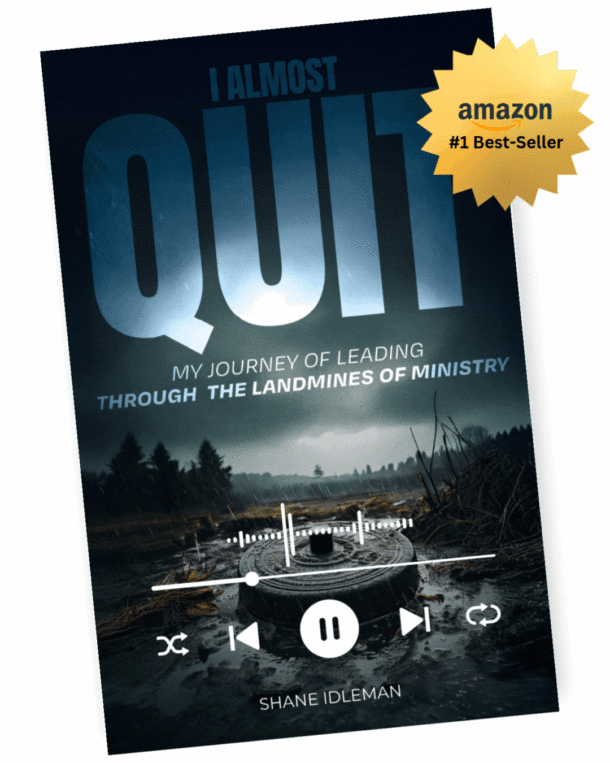Part 3 in a series on physical health
After years of dieting, I became so frustrated that I almost gave up altogether. After all, who wants to exercise daily, follow a special diet, and sacrifice time for nothing? We want immediate results. But when the results take longer than what we had planned, we become frustrated and eventually give up. A key element of success is knowing what to expect. People succeed at health when they stop focusing on immediate results and start focusing on changing their lifestyle. A biblical approach focuses on gradual, healthy lifestyle changes.
It’s unfortunate that we live in an age when immediate gratification has taken precedence over delayed gratification. We are told that good health can be quick and easy. As a result, we waste time and money on products that promise the world but fail to deliver worthwhile results. The majority of diet advertisers thrive on the principle that people will purchase products based on emotional response and urgency. Many have been largely conditioned to believe that they can do the least amount of work possible in the shortest amount of time where health is concerned. This is not a biblical approach. “Lose weight quick” is a great marketing slogan but it is not realistic.
I had often read that diet and energy drinks were not healthy, but that didn’t stop me from consuming them on a regular basis. It wasn’t until I researched the ingredients that I gave up drinking them. Not only do these beverages offer zero nutritional value, their ingredients are very harmful. Mechanics often use them to clean battery cables because of the acidic state. The heartbreaking truth is that millions of people consume these harmful ingredients on a daily basis, sometimes several times a day, without realizing what they are consuming. It’s little wonder that, as a nation, we’re experiencing record levels of health related problems. Again, ask yourself, “Does my body need it—or does it want it?” If it needs it, consume it. If it wants it, think twice. It’s not easy to completely quit drinking these products. The media does a masterful job promoting, marketing, and winning our minds with pleasant thoughts associated with their consumption. In many cases, profit drives companies, not health!
Initially, people are highly motivated and disciplined when they begin focusing on health. Many immediately stop eating fast food, stop consuming alcohol, stop eating sweets, and start exercising excessively. But as time passes, they fail to exercise as often, they don’t monitor food as closely as they once did, and they lose the motivation they once had. As a result, they fall back into old habits and behaviors, and eventually a lifestyle. But you can prevent this by introducing changes at a gradual pace and focusing on long-term results. What it takes to acquire health is what it takes to keep it. Therefore, don’t attempt to change your entire lifestyle overnight. For example, cut back on sugar consumption (i.e. soft drinks and junk food) and add exercise to your daily routine a few times a week. A few weeks later, add another day of exercise and limit junk food consumption; continue until a balance is reached. Don’t get frustrated. The key is to make more right choices than wrong ones. This you can begin today. If you don’t control your life, life will control you.
Is discipline really important? Through extensive contact within the fitness industry, I found that many recognized the need for discipline but believed that they had little, if any. They conditioned themselves to believe that discipline was an attribute they could not possess. They failed to recognize that they already possessed it; identifying it was difficult. If it were possible to have offered them a generous sum of money as soon as they reached their weight-loss goal, they would have quickly become highly disciplined and lost the desired weight, simply because their motivation outweighed the obstacle. Surprising, isn’t it, because health is far more valuable than money.
Many of America’s most popular foods have little, if any, food value, and a high calorie content. Once more, far too many people ignore the nutritional value of food. They are slowly undermining health because of poor food choices. A controversial sweetener, aspartame, for example, is used in many products (i.e., diet drinks, yogurt, gum, meal replacement drinks, supplements, etc.). Research has shown that although aspartame is sweet, the adverse effects can be very detrimental to health. It was discovered in 1965 when Dr. Schlatter, while working on an anti-ulcer medication, mixed a substance with methanol (wood alcohol). The result was a very sweet taste. The FDA has been reviewing this additive for many years and the reports have been startling. Many animals, including roaches, won’t consume it. Should we? You be the judge!
Many people consume harmful foods for breakfast, lunch, and dinner, as well as snacks. For instance, how many times do people consume diet drinks or soft drinks instead of the water they need? The question isn’t if they can cause damage to the body, but when they’ll cause damage.
Our bodies were designed to consume healthy, ground-originating carbohydrates. They are the primary source of energy. Many Scriptures found throughout the Bible make reference to carbohydrates. Ezekiel 4:9, for example, states “Also take for yourself wheat, barley, beans, lentils, millet, and spelt…and make bread for yourself.” We are further encouraged to let our moderation be known to all men. The key word is moderation. Eat moderately and keep in mind that even healthy foods need to be consumed in moderation.


